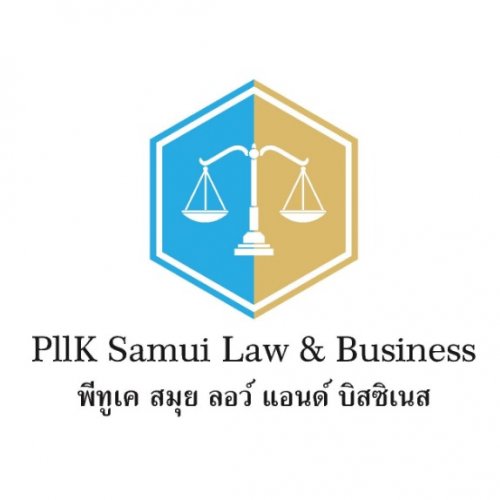Best Antitrust Litigation Lawyers in Surat Thani
Share your needs with us, get contacted by law firms.
Free. Takes 2 min.
List of the best lawyers in Surat Thani, Thailand
About Antitrust Litigation Law in Surat Thani, Thailand
Antitrust Litigation in Surat Thani, Thailand involves legal disputes that arise from violations of competition laws designed to ensure fair competition in the marketplace. These laws prevent businesses from engaging in practices such as price fixing, market sharing, bid rigging, and abuse of dominant market positions. In Surat Thani, as in the rest of Thailand, the Trade Competition Act B.E. 2560 (2017) is the primary legislation governing antitrust and competition matters. The law is enforced by the Office of Trade Competition Commission (OTCC), which investigates potential violations and can impose substantial penalties for non-compliance. The objective is to protect consumers, promote market efficiency, and foster a fair business environment.
Why You May Need a Lawyer
There are several situations where individuals or businesses in Surat Thani may require assistance from a lawyer specializing in antitrust litigation:
- Facing Investigation: If your business is under investigation by authorities for suspected violation of antitrust laws.
- Alleged Unfair Trade Practices: If your company is accused of price fixing, collusion, or abusing market dominance.
- Filing a Complaint: If you believe a competitor or another business is engaging in anti-competitive behavior that harms your company.
- Legal Compliance: To ensure your business agreements and practices comply with Thai competition law.
- Civil Damages: If you suffered financial harm due to another entity's anti-competitive conduct and want to seek compensation.
- Mergers and Acquisitions: For legal guidance on how proposed mergers or acquisitions may be subject to regulatory scrutiny or approval.
- Representation in Court: If your case escalates to court or administrative proceedings.
Local Laws Overview
Surat Thani, like the rest of Thailand, adheres to the Trade Competition Act B.E. 2560 (2017). This law applies to business operators engaged in commercial activities within Thailand, and prohibits the following practices:
- Collusion and Cartels: Agreements among competitors to fix prices, restrict output, or divide markets.
- Abuse of Dominant Position: A business with significant market power may not exploit its position to eliminate competitors or restrict consumer choices.
- Unfair Trade Practices: Activities that mislead consumers, such as false advertising or unfair contract terms.
- Mergers and Acquisitions: Certain transactions must be reported to or approved by the OTCC if they exceed specified market thresholds.
Violations can result in administrative fines, criminal penalties, and civil liabilities. Enforcement actions are generally initiated by complaints from businesses, consumers, or the OTCC itself.
Frequently Asked Questions
What is considered an antitrust violation in Surat Thani?
Any conduct that restricts competition, such as price fixing, market sharing, bid rigging, and abuse of dominant position, can be considered an antitrust violation under Thai law.
Who enforces antitrust laws in Surat Thani?
The Office of Trade Competition Commission (OTCC) is the main authority responsible for investigating and enforcing antitrust laws throughout Thailand, including Surat Thani.
What penalties can be imposed for violating antitrust laws?
Penalties may include administrative fines, criminal prosecution, imprisonment, and compensation for damages to affected parties.
Can individuals or only companies be sued under the Trade Competition Act?
Both companies and individuals (such as company directors or managers) can be held responsible for violations of competition law.
What should I do if my business receives a notice of investigation?
You should immediately seek legal advice from an experienced antitrust lawyer to ensure your rights are protected and to respond appropriately to the authorities.
Is antitrust law applicable to foreign businesses operating in Surat Thani?
Yes, antitrust law applies to all businesses operating within the Kingdom of Thailand, irrespective of their origin.
Can I report a competitor for suspected anti-competitive conduct?
Yes, you can file a complaint with the OTCC if you suspect that a business is engaging in unfair trade practices or violating competition laws.
How long do antitrust cases typically take to resolve in Thailand?
The duration varies depending on the complexity of the case but can range from several months to several years, especially if a case progresses through the courts.
Are all mergers subject to review by Thai authorities?
No, only mergers and acquisitions that exceed certain market share or sales value thresholds must be notified to the OTCC for review and possible approval.
What are my rights during an antitrust investigation?
You have the right to legal representation, the right to present evidence in your defense, and the right to appeal adverse decisions following due process.
Additional Resources
If you need legal advice or assistance related to antitrust litigation in Surat Thani, the following resources may be helpful:
- Office of Trade Competition Commission (OTCC): The primary governmental body for enforcing competition law in Thailand.
- Surat Thani Provincial Court: Handles civil and criminal litigation, including trade competition cases.
- Local Bar Associations: Can provide referrals to qualified antitrust lawyers in Surat Thani.
- Legal Aid Centers: Some local institutions and universities may offer free or low-cost legal counseling services.
- Thailand Ministry of Commerce: Offers resources and publications on trade competition and consumer protection law.
Next Steps
If you or your business is involved in an antitrust matter in Surat Thani, it is important to act quickly and take the following steps:
- Collect all relevant documents, contracts, and correspondence related to the case.
- Contact a qualified antitrust or competition law attorney with experience in Thai trade competition matters.
- Request a consultation to discuss your case, your rights, and possible outcomes.
- Follow your lawyer’s advice and respond promptly to any communications from regulatory authorities.
- Keep informed about your legal obligations and any deadlines set by the authorities or the courts.
Timely legal advice is essential for ensuring your interests are protected and for achieving the best possible outcome in any antitrust litigation.
Lawzana helps you find the best lawyers and law firms in Surat Thani through a curated and pre-screened list of qualified legal professionals. Our platform offers rankings and detailed profiles of attorneys and law firms, allowing you to compare based on practice areas, including Antitrust Litigation, experience, and client feedback.
Each profile includes a description of the firm's areas of practice, client reviews, team members and partners, year of establishment, spoken languages, office locations, contact information, social media presence, and any published articles or resources. Most firms on our platform speak English and are experienced in both local and international legal matters.
Get a quote from top-rated law firms in Surat Thani, Thailand — quickly, securely, and without unnecessary hassle.
Disclaimer:
The information provided on this page is for general informational purposes only and does not constitute legal advice. While we strive to ensure the accuracy and relevance of the content, legal information may change over time, and interpretations of the law can vary. You should always consult with a qualified legal professional for advice specific to your situation.
We disclaim all liability for actions taken or not taken based on the content of this page. If you believe any information is incorrect or outdated, please contact us, and we will review and update it where appropriate.










